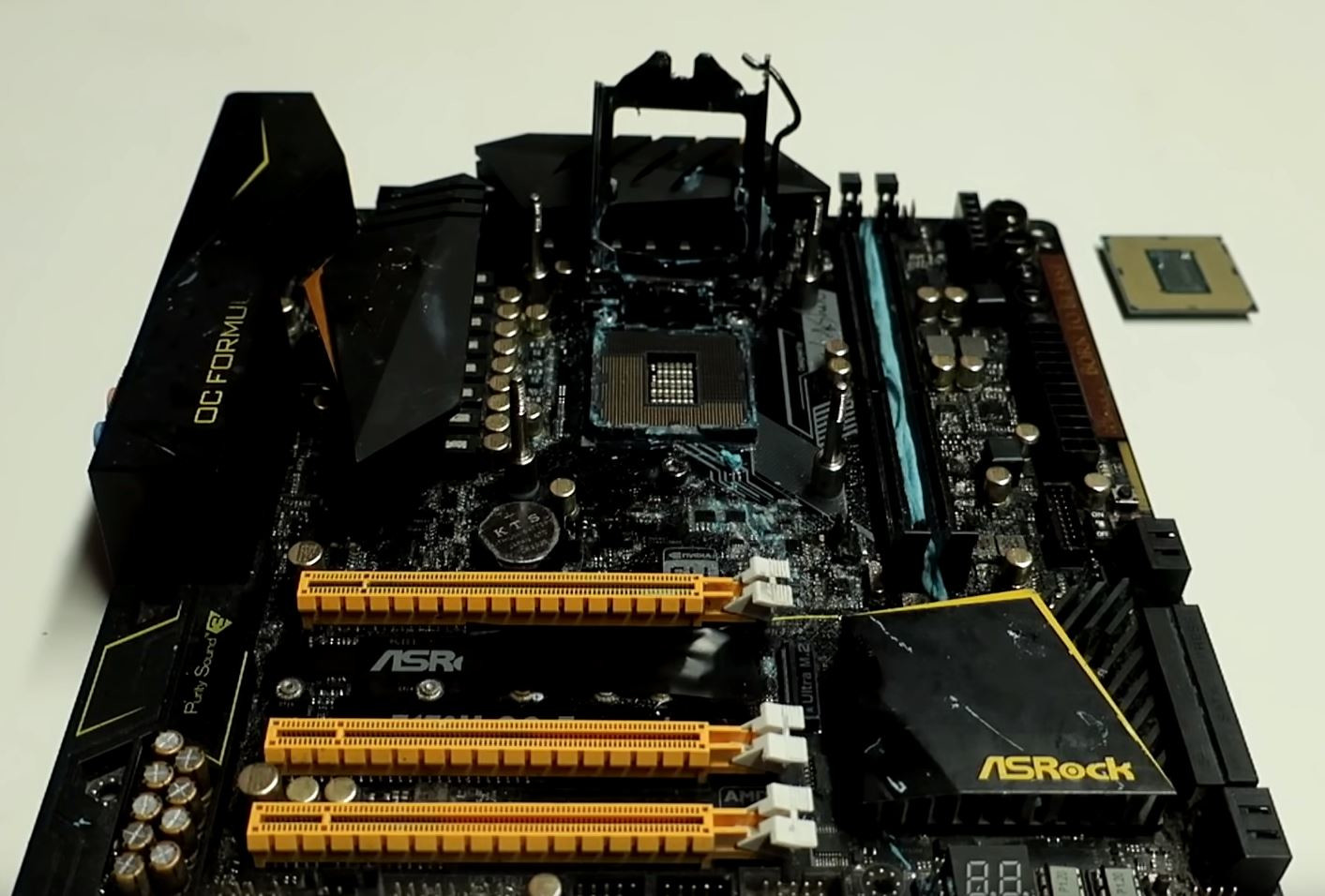[…]
My point was that Intel controls when 10nm is ready. They screwed up by announcing it long before they were ready to ship it, and they got hurt by that.
But Intel doesn't control when PCI-E 5.0 is ready. PCI-SIG does that. And if Intel announces (or leaks) that they're going to implement PCI-E 5.0 in future, then that means they (and PCI-SIG) are both sure that PCI-E 5.0 will be ready to go at that time.
Why am I sure of that? Because there are 900 other companies all involved in the decision making here, and the announcement of PCI-E 5.0 being ready to go, would have only happened after those 900 companies all agreed that PCI-E 5.0 was ready to launch and could be delivered on time.
I still don't get it and I'm same as confused as
@fynxer here. I just don't get the correlation you're trying to make.
Where's the connection between Intel announcing to feature PCI-E 5.0 anytime in the future
and Intel releasing actual hardware supporting
even at least its predecessor?
Are you implying the standard
isn't there yet or
wouldn't be finished?
PCI-E 4.0 was completed already in '17!
And we even have had the surprising situation that PCI-E 5.0 even already saw completion well prior to its actual predecessor reaching the consumer-market. PCI-E 4.0 is complete and ready to manufacture since a while now – and so is PCI-E 5.0. So what are you trying to say?
All of this is true, but, again,
@juiseman was implying that because Intel fucked up the engineering of 10nm, that intel would therefore be incapable of implementing PCI-E 5.0 on time.
To be honest and being fair towards their (recent) history with announcements and sporting no actual products following them afterwards, I would doubt that too.
For instance, I wouldn't want to bet even a single dime that Intel is bringing actual hardware supporting anything beyond PCI-E 3.0 prior to nVidia feature PCI-E 4.0 on their cards.
Would you,
@theoneandonlymrk, please like to explain to me, exactly how juiseman's point is true, bearing in mind that:
1 - designing a controller to implement an existing standard is nowhere near as complicated as building a new semiconductor manufacturing process from scratch
2 - PCI-SIG doesn't release standards that aren't ready to be implemented, whereas Intel *did* announce a 10nm technology that was nowhere near implementation.
Well, given how Intel managed to fuck up virtually everything the last couple of years (not just after Ryzen but even well before that) …
There's no proper competition-products against anything Ryzen from them with a
new approach instead of just warming up their age-old Core-µArch for the next half of a decade. Like getting flexible and sport some bright new ideas and approaches, like get a new mask and just copying AMD with their design. Or even
this as some quick-and-dirty-approach. No will to change of their old, filthy corporate habits and behaviour but relying on age-old grey-ish to straight-out illegal practices
to stay trying to stay atop at all costs.
See, they've literally fucked up
every entry into another lucrative market since the Sandy bridge-era. Their second trying to enter the mobile-market to create a sound sales market for their low-cost Atoms (and competing against ARM) was a flaming desaster from start to finish. Their wireless approach with 3G, 4G and 5G was also a flamign desaster from start to finish. … and given how much they pumped into their dedicated graphics-department to establish any dominance in graphics – and eventually had to end up to just compulsively bound it to other products by implement is as some embedded graphics as their iGPU (Hint: no-one would've bought or featured their graphics within their products unless they were focred to do). Well … Thing is, you can go on and on with so many examples.
Thing is, hey were just plain unable to bring any greater
innovative competitive products whatsoever (apart from their CoreµArch; and given Meltdown and alike, even that was cheated on) to enter a new market on their own – like AMD did by bringing Threadripper which wasn't at any road-map nor planned just a few month prior to hit the market with an actual product (and
re-define the HEDT-space altogether in one sweep).
So having said that, I would dare to say that chances are that they're also will fuck up that too, yes.
Thing is,
their corporate character hasn't changed a bit since the Pentium (4) times and they (just as always) trying to get dirty if there's some competitor which came up with a innovative product they weren't prepared for (Hint: They never were and most likely never will be). They ain't innovating
at all.
Smart







 ) We are counting ALL cpu/sockets combos, not just PC, that would be biased dont ya think?
) We are counting ALL cpu/sockets combos, not just PC, that would be biased dont ya think?


